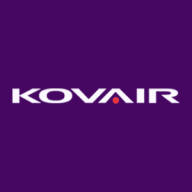

Oracle Exadata and Kovair Data Lake compete in large-scale data operations. Oracle Exadata appears to have the advantage in performance and integration, while Kovair Data Lake excels in flexible deployment and analytics.
Features: Oracle Exadata features high-performance capabilities, integrated database management, and optimized hardware configurations. Kovair Data Lake features flexible data integration, real-time analytics support, and agile data pipeline management.
Ease of Deployment and Customer Service: Oracle Exadata offers a streamlined deployment process with comprehensive customer service. Kovair Data Lake provides a cloud-centric deployment model and emphasizes customer support.
Pricing and ROI: Oracle Exadata requires a sizable initial investment with promises of high ROI. Kovair Data Lake offers a flexible pricing structure, allowing for scalable growth and potentially improved ROI.
| Product | Market Share (%) |
|---|---|
| Oracle Exadata | 11.7% |
| Kovair Data Lake | 1.3% |
| Other | 87.0% |


| Company Size | Count |
|---|---|
| Small Business | 47 |
| Midsize Enterprise | 14 |
| Large Enterprise | 86 |
Kovair Data Lake is a central database that comes with SQL server support. This makes it capable of storing data from multiple projects residing in diversified tools used by an organization. Based on organizational needs, the stored data is then segregated by departments or business units. Kovair Data Lake also comes with a very intuitive UI interface for managing and monitoring of the Data Lake.
Many organizations use enterprise data warehouses to meet both operational and reporting needs. However, apart from offering a storage and management facilities, there are certain limitations that organizations continue to face. These are –
- Real-time synchronization of data within a centralized data storage
- Traceability and governance of stored data
- Low-cost storage infrastructure compared to Big Data or Data Warehouse
- Handling of low volume but highly diversified data
- Prescriptive analytics that will aid in taking data-driven decisions and on-time service delivery
Kovair has been a market leader in the domain of data integration with a marquee of clients from networking, semiconductor, telecom, manufacturing, banking and finance. Over the recent years, it has witnessed a shift in focus for organizations using multiple tools and different teams. While Kovair Omnibus provides the support for features like traceability, cross tool reporting, and task-based workflow that is simply not enough! Customers today are looking for central data store where data coming from different tools used in an organization could be accumulated in its native format.
Data Lake presents a low-cost alternative to exploding storage and processing costs of traditional warehouses.
While traditional data warehouses store data in hierarchical format. Data Lake offers a central database repository with a flat architecture for storing the data. This protects the data from unwanted manipulation, enabling businesses to take informed decisions accurately and building a better business-customer relationship.
- Large Data Repository for Central Administration
- Tool Extractors with WS/SQL Communication Support
- Web-based Data Lake Portal
More details - https://www.kovair.com/data-lake/
Oracle Exadata allows enterprises to run any Oracle Database workload with the highest performance, scale, availability, and security on fully compatible cloud and on-premises infrastructure. Exadata uses a scale-out design with unique optimizations that include persistent memory, SQL query offload, and built-in resource management to optimize performance for OLTP, analytics, machine learning, and mixed workloads running in consolidated environments. By running hundreds or thousands of optimized Autonomous Database and Exadata Database instances on Exadata Cloud or Cloud@Customer infrastructure, customers are able to minimize their infrastructure, reduce management, improve developer productivity, and lower total costs by up to 40%, as described in Wikibon’s analysis (PDF).
The main benefit of Exadata is its speed. It hosts operating systems, CPU memory, and hard drives. It runs all types of databases, including online transaction systems, processors, and data warehouses, while remedying the poor performances of older databases.
Oracle Exadata features a simple and fast database storage system that protects and backs up your critical data. It accelerates data warehouse performance for faster access to business information and data. It is the ideal database solution for companies looking to build up their infrastructure from scratch.
Oracle Exadata Database Machine Key Benefits
Accelerate database processing: Exadata Storage Server implements a unique, highly efficient database-optimized storage infrastructure that enables Exadata’s unparalleled performance without any of the bottlenecks that traditional storage experiences. Each storage server contains CPU processors that are used to offload database processing. The CPUs in the storage servers do not replace database CPUs, but work alongside them to accelerate database workloads.
Reviews from Real Users
Oracle Exadata stands out among its competitors for a number of reasons. Two major ones are its robust performance and its wide variety of database features that make it a comprehensive database solution.
Adriano S., an IT system integrator at a financial services firm, writes, "Oracle Exadata's performance is one of its best features. We are very satisfied with it. The previous equipment used to make a payment for all the government employees used to take at least two days for some of the transactions. Now, it will take hours to make the same amount of payments. Another thing is the flexibility to organize all our databases. We can use it with new features that come with this version of Oracle 19c, which is the container database. With container databases, we can work with many databases, organized, and segregated, and still access the functions and management, the things that most of the technical people like to have in place."
Paulo X., a sales manager at LTA-RH Informatica, notes, "Regarding features, there are so many that we can offer to customers. When we sell Exadata Cloud, there are many options to choose from, especially when it comes to enterprise database options. In my experience, the main features that are appreciated are various ones like GPS and the assortment of security options."
We monitor all Data Warehouse reviews to prevent fraudulent reviews and keep review quality high. We do not post reviews by company employees or direct competitors. We validate each review for authenticity via cross-reference with LinkedIn, and personal follow-up with the reviewer when necessary.